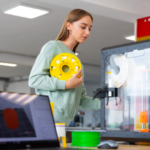Music technology a level is revolutionizing the way students learn and create music. This dynamic subject combines traditional music theory with cutting-edge technology, allowing students to explore new creative possibilities and develop valuable skills for the modern music industry. In this article, we’ll delve into the key aspects of music technology at a level, its benefits, and how it’s shaping the future of music education.
Understanding Music Technology A Level
Music Technology A Level is an advanced course designed for students who are passionate about music and interested in the technical aspects of music production. The curriculum covers a wide range of topics, including sound recording, mixing, music production, and digital audio workstations (DAWs). Students also learn about the history and development of music technology and the impact of technology on music composition and performance.
Key Components of the Curriculum
Sound Recording: Students learn the fundamentals of sound recording, including microphone techniques, studio setup, and signal processing.
Mixing and Mastering: The course covers essential mixing and mastering techniques to create polished and professional-sounding tracks.
Music Production: Students explore various music production techniques, including beat-making, synthesis, and sample manipulation.
Digital Audio Workstations (DAWs): The curriculum includes hands-on training with industry-standard DAWs like Ableton Live, Logic Pro, and Pro Tools.
Music Theory and Composition: Students develop a strong music theory and composition foundation, integrating traditional concepts with modern technology.
Benefits of Studying Music Technology A Level
Developing Technical Skills
Studying music at a level equips students with diverse technical skills that are highly valuable in the music industry. From recording and mixing to mastering and production, students gain hands-on experience with the latest tools and techniques professional music producers use.
Enhancing Creativity
Music technology a level encourages students to think creatively and explore new ways of making music. By combining traditional music theory with innovative technology, students can push the boundaries of their creativity and develop unique musical styles.
Preparing for a Career in the Music Industry
The skills and knowledge gained from studying at a level are directly applicable to various careers in the music industry. Graduates can pursue roles such as sound engineers, music producers, composers, and audio technicians. The course also provides a solid foundation for further studies in music production and technology at the university level.
The Impact of Music Technology on Education
Transforming Traditional Music Education
Music technology at a level transforms traditional music education by integrating technology into the learning process. This approach allows students to engage with music in new and exciting ways, making the subject more accessible and relevant to modern learners.
Encouraging Collaboration and Innovation
The use of technology in music education promotes collaboration and innovation among students. By working with digital tools and online platforms, students can collaborate on projects, share ideas, and learn from one another. This collaborative environment fosters creativity and helps students develop important communication and teamwork skills.
Expanding Access to Music Education
Expands access to music education by providing students with the tools and resources they need to create music from anywhere. With the rise of online learning platforms and affordable music production software, students can learn and produce music without the need for expensive studio equipment.
Key Components of Music Technology A Level
| Component | Description |
|---|---|
| Sound Recording | Microphone techniques, studio setup |
| Mixing and Mastering | Techniques for polished tracks |
| Music Production | Beat-making, synthesis, sample manipulation |
| Digital Audio Workstations (DAWs) | Training with industry-standard DAWs |
| Music Theory and Composition | Traditional concepts with modern technology |
Conclusion
Music technology at a level is revolutionizing music education by combining traditional music theory with cutting-edge technology. This innovative approach provides students with valuable technical skills, enhances their creativity, and prepares them for successful careers in the music industry. As technology continues to evolve, play a crucial role in shaping the future of music education.
Frequently Asked Questions
What is music technology at a level?
It is an advanced course that combines traditional music theory with modern music production techniques.
What are the key components of the music technology-a-level curriculum?
The curriculum includes sound recording, mixing, mastering, music production, digital audio workstations, and music theory.
How does benefit students at a level?
It develops technical skills, enhances creativity, and prepares students for careers in the music industry.
What career opportunities are available for music technology a-level graduates?
Graduates can pursue careers as sound engineers, music producers, composers, and audio technicians.
How does music technology at a level transform traditional music education?
It integrates technology into learning, making music education more accessible and relevant.
How does encourage collaboration and innovation at a level?
Students can collaborate on projects and share ideas using digital tools and online platforms.
Can students learn music technology at a level online?
Yes, online learning platforms and affordable music production software make it possible for students to learn and produce music from anywhere.
What are digital audio workstations (DAWs)?
DAWs are software applications used for recording, editing, and producing audio files.







